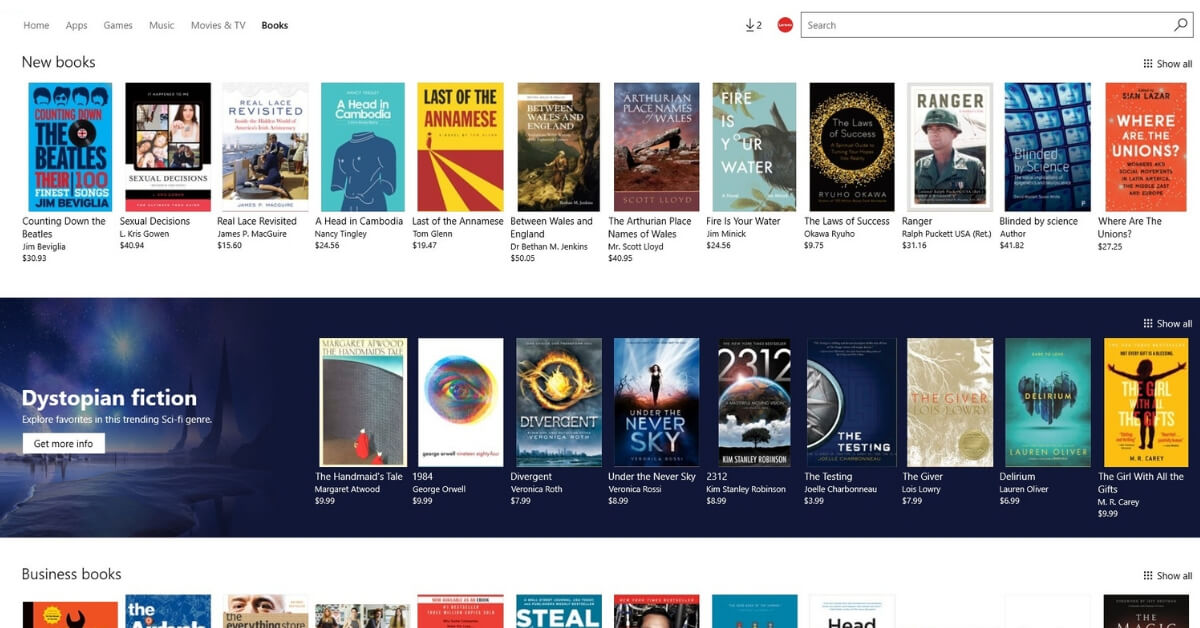Microsoft has announced that the DRM-locked ebooks section of its store is closing and that it will also be removing purchased ebooks from customer libraries later this year.
From today (April 2, 2019), customers will no longer be able to purchase or rent ebooks in the Microsoft Store. Then from early July 2019, Microsoft will start removing purchased ebooks from customer libraries and issue refunds to customers. Any pre-orders for books that are due to be released between April 2, 2019, and July 2019 will be canceled and refunded.
Markups and annotations will also be removed from ebooks by early July 2019 and cannot be automatically transferred to other versions of the ebook outside the Microsoft Store. Microsoft is offering $25 additional credit to customers who have added markups or annotations to their ebooks prior to April 2, 2019.
According to ZDNet, the official reason for the closure of the ebooks is to streamline the strategic focus of the Microsoft Store. However, Boing Boing has speculated that the ebooks section of the Microsoft Store isn’t making enough money which makes sense given that the Kindle Ebook Store, the Apple Books Store, and Google Play Book Store are more widely known than the ebook section of the Microsoft Store.
If you want to keep a digital version of the ebooks you’ve purchased from Microsoft, you’ll need to buy new versions elsewhere. If you want to keep the annotations and markups, you’ll also have to come up with a strategy for manually recording and transferring the annotations and markups to new versions of the books. This could be a cumbersome process, so it’s best to start preparing now.
This update from Microsoft highlights a major problem with the increasing prevalence of DRM-locked digital goods – when you purchase these digital products, you never really own them and they can be taken back at any time.
This isn’t the first time DRM-locked products have been taken back by a digital store owner. Last year, Apple removed purchased movies from a user’s iTunes library.
While these DRM-locked marketplaces certainly are convenient, that convenience comes at the cost of not actually owning the products you buy.













